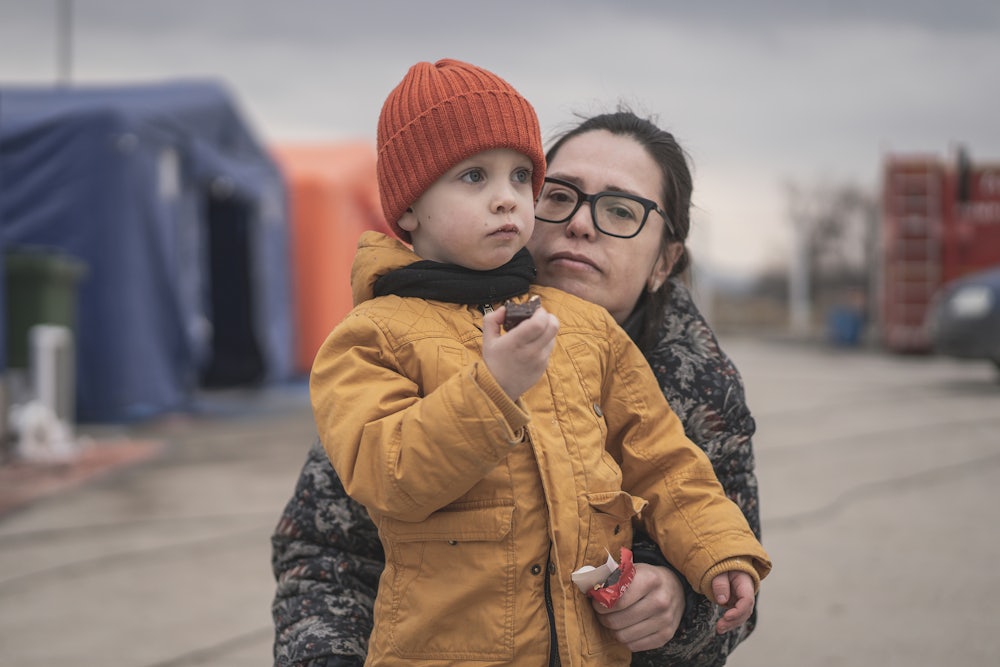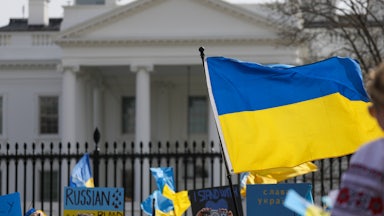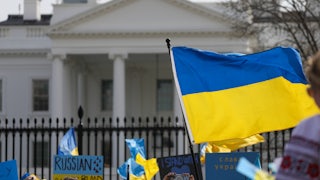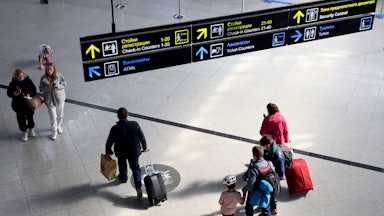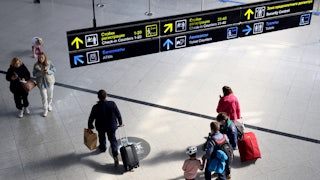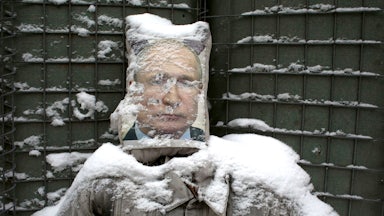Since Russian forces launched the invasion of Ukraine in the early hours of February 24, more than two million people have already fled the country seeking refuge as the Russians target civilians. The United Nations estimates up to four million people may flee Ukraine, creating the largest refugee crisis since World War II. At the Romanian border, Isaccea, a town of about 5,000, is taking in thousands of refugees. Eight Ukrainians tell the story of their experience and their escape to safety.
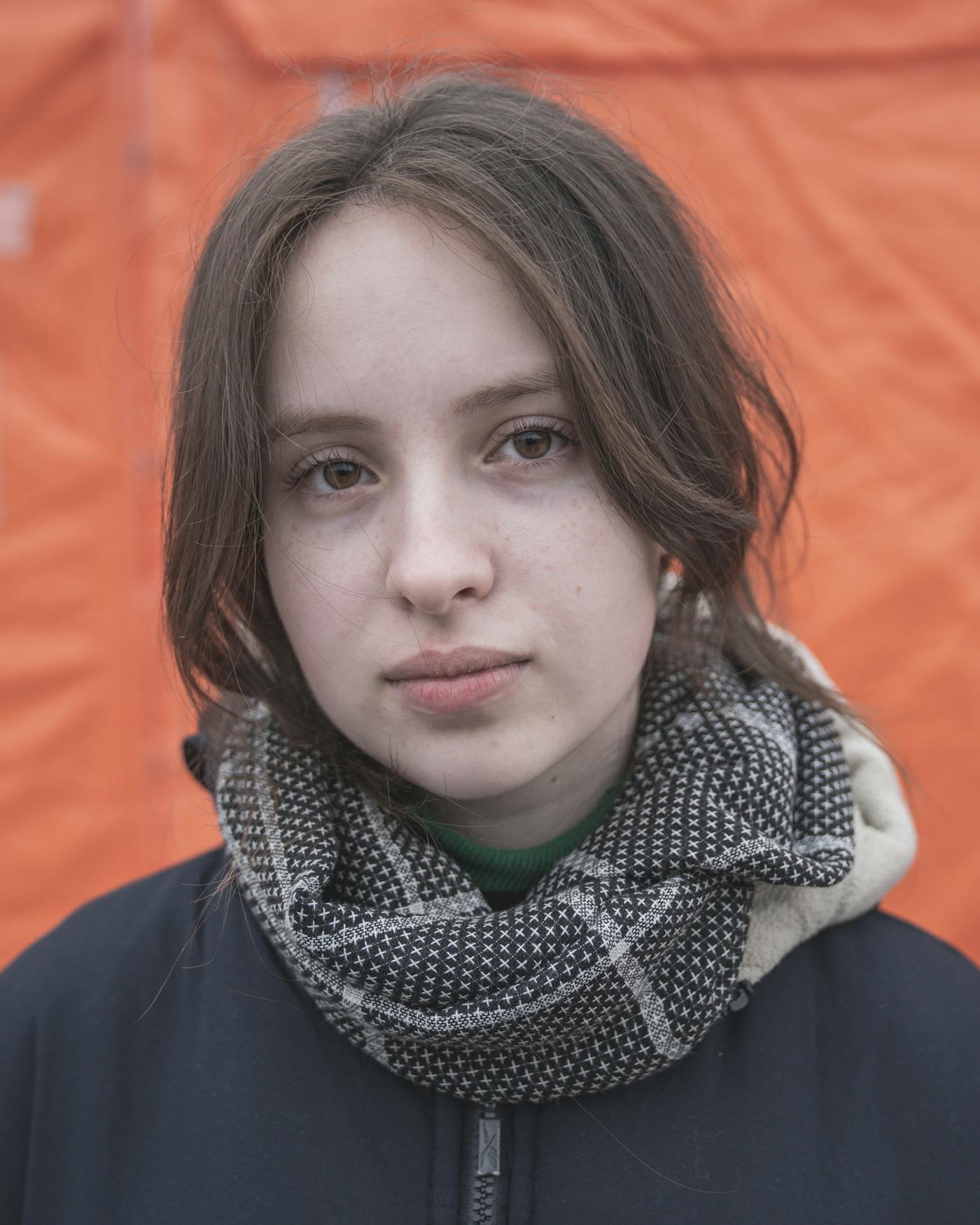
Yeva, age 17, hometown: Odessa
“At five o’clock in the morning of February 24, we heard that terrible sound. Like shooting. At 11 o’clock, too. The second day the war started, I moved from Odessa to a small town, in Bolhrad [a small city in Odessa, some 70 km from the border crossing with Romania]. And yesterday [March 3] we came to the border with Romania. My parents wanted to send me to another country because it was very dangerous. I am traveling with my cousin Oleg, 25. Because he can go abroad, and we decided that it was more safe for me and him to be in another country. I am going to Germany; my boyfriend is there. I only took few things like one pair of socks, one pair of pants, one sweater, and that’s all! It’s very awful, but I hope that I will go home again and it will be safe. I just want to wait in a safe place and then go back home. My parents and my brother stayed in Ukraine. My father and my mother want to go help Ukraine, volunteer. I’m so scared for them. The world has gone crazy. I hope we will overcome all these problems, all these hard times and we can go on, live in a free, big, beautiful country.”
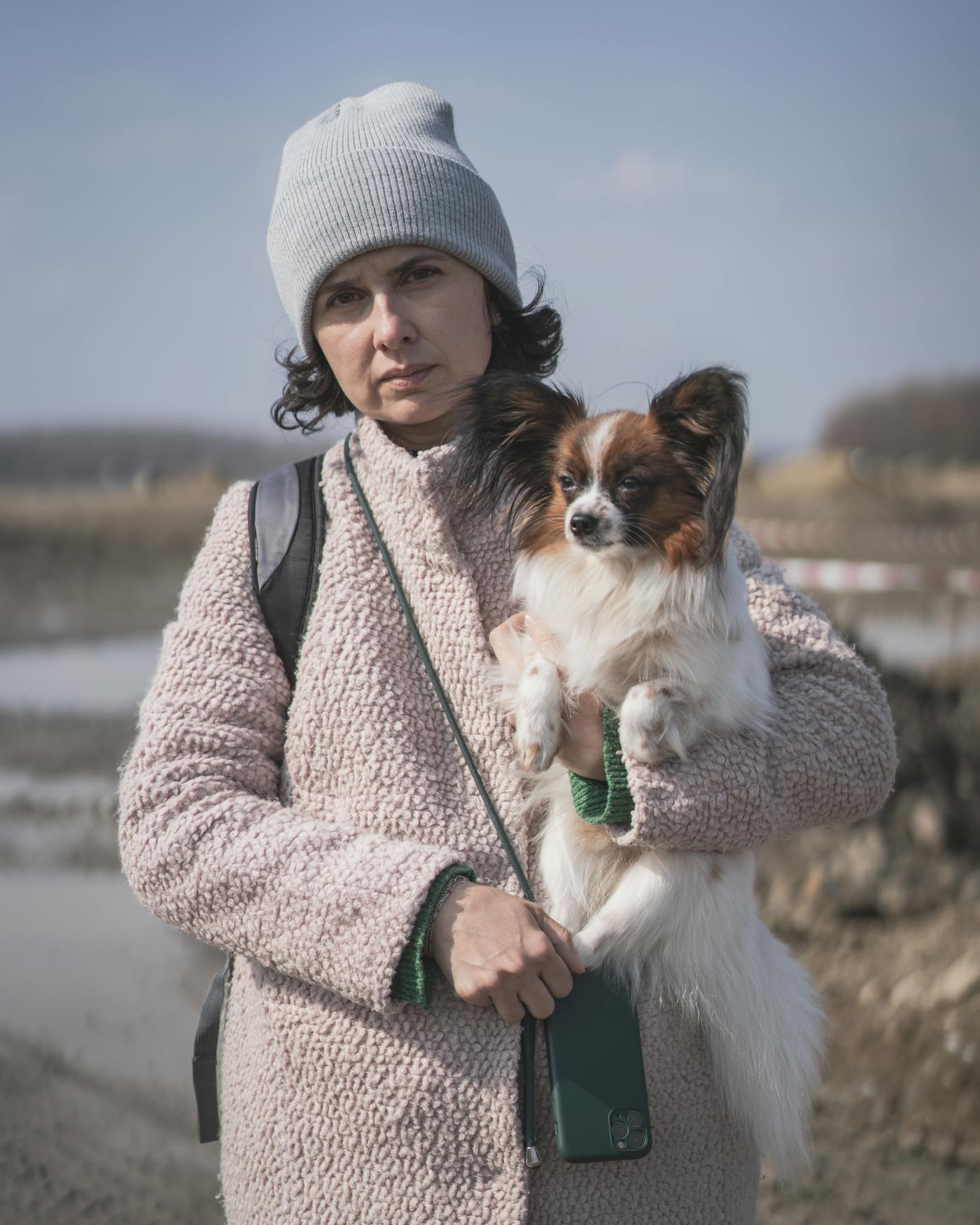
Ana, age 37, hometown: Odessa
“On February 24, I woke up to the sound of bombing. I left home together with my husband, our 11-year-old son, Serghey, and our dog Kabacioc [Zucchini], wishing to flee to safety. We packed all our lives into one suitcase, taking just some clothes, mostly my son’s things. Some family friends let us stay at their house in Izmail [a town in Ukraine, 48 km from the border crossing with Romania], so we waited there for a while. By the time we decided to cross the border, the ban on men leaving aged 18–60 was already in place and my husband was not allowed to pass. We had no concrete plans, didn’t know where to go. Now I came to Romania alone, trying to scout things and to find accommodation where pets are allowed. Germany might have been an option, as my husband could find a job there, but if he will not be able to come, I plan to go back to Ukraine, take my son and stay in Romania. But we’ll try everything for all of us to be together.
I left Serghey with his father because things are still safe in Izmail and I was not sure what I [would] find here. And I thought if he had to take care of the child, he was safe. He would keep busy and would not think of going to fight. I worry about them both. Now men there are in a difficult psychological situation; my husband is not military and has to go and fight against tanks with his bare hands. It’s a complicated situation.
When all this madness started, I tried to see the philosophical side of things, that maybe this is a challenge for us all, something to learn out of. I was trying to find a glimpse of hope. Just to not go insane. But seeing things got out of control and they are getting worse, I felt the danger. The self-preservation instinct prevailed, and I understood there is no time for analysis. Then I just wanted for us to set foot in another country as soon as possible, to know that we are safe.”
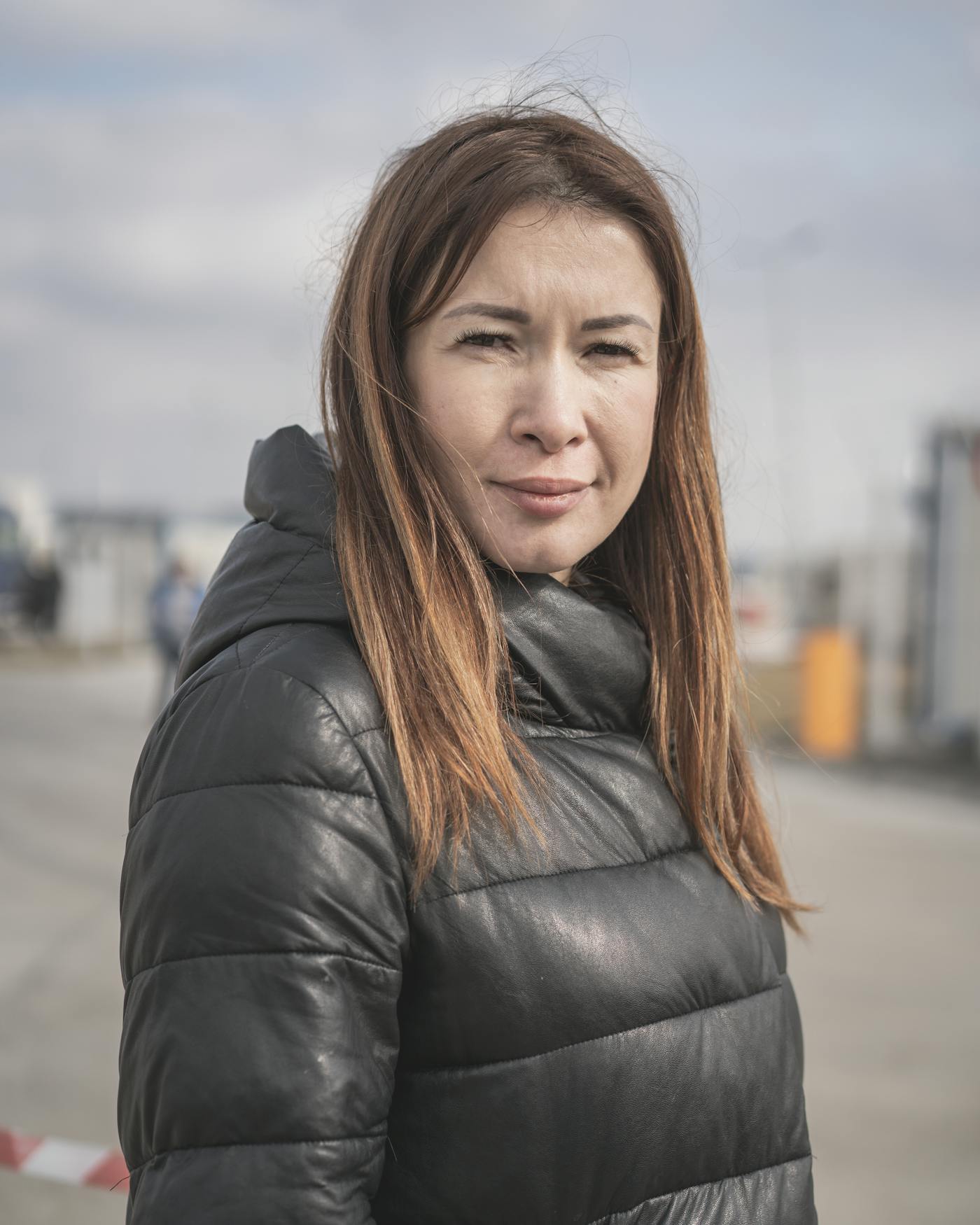
Olena, age 37, hometown: Odessa
“When the war started, we decided to leave Odessa and go to Bila Tserkva [a town in central Ukraine, 80 km south of Kyiv]. My husband’s parents live in a house on the ground there, and we thought it would be safer. But then the bombing started and everyone got scared. We would go to the basement and stay for half an hour at a time. We came back to Odessa.
We left Odessa yesterday morning [March 3], but it was very crowded, so we reached Izmail late in the evening. In our country you are not allowed to be on the streets after 7 p.m., so we spent the night in Izmail and crossed the border into Romania the next morning.
My husband told me, “You have to leave.” He was scared for our family. People are panicking, they are afraid, they don’t know what’s going to happen next, and that’s why they leave. Schools are closed, everything is closed. Factories are closed, and people lose their jobs.
Ever since I left, two days ago, I’ve been crying. When will this war end? Nobody knows. When will I see my husband again? I don’t know if I will ever see him again. He went back to Bila Tserkva to take care of his parents. My father is in Izmail; he cannot walk. Now things are safe there, but if it gets worse I want to go back and bring him to Romania.
I just hope it will all be over in a few days and we can all go back home. ’Cause nobody wants to go abroad; at home is best.”
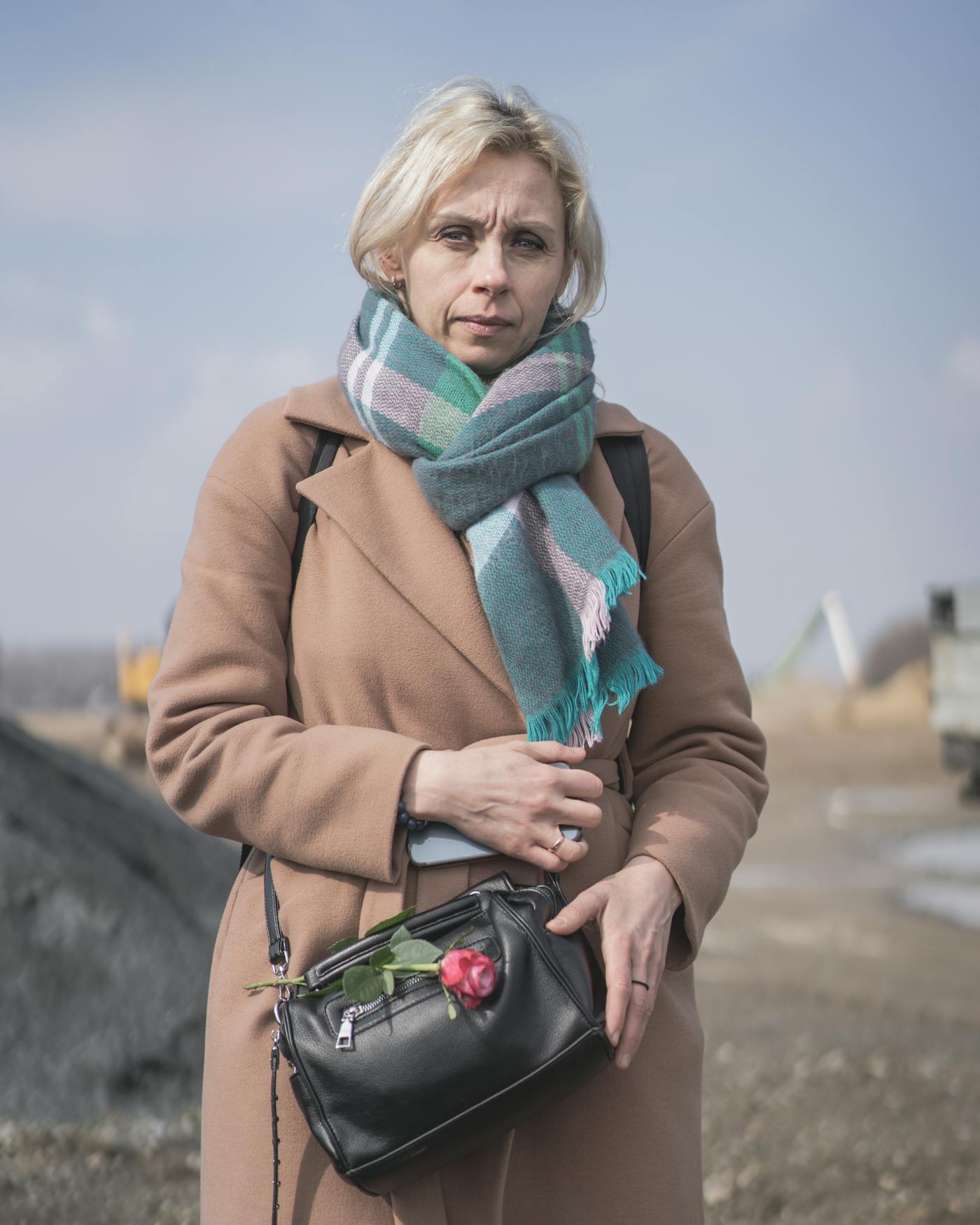
Natalia, age 40, hometown: Odessa
“It’s the second time my family has to flee the war in Ukraine. In 2014, we moved from Donetsk, our hometown, to Odessa, after the war in Eastern Ukraine started. Now we had to leave again. My husband drove me and our two kids to Izmail, 48 km from the border crossing with Romania, and then he had to go back to Odessa. I have a daughter, Kira, 15, and a son, Nazar, 14 years old. We are also traveling with Andryi, 16, the son of some family friends who put him in my care. We packed our documents, some clothes, and my Bible.
My priority was to get the kids out of the country as soon as possible. There is fighting in Mykolaiv and Kherson, which are close to Odessa. That made me feel afraid and insecure, and we decided to leave while there was time. My parents did not want to leave again. They said they left once from Donetsk, but now they are not leaving their country. Apart from being afraid, I have all the possible negative feelings: anger, frustration, hatred. It’s psychologically difficult to go though this, feeling helpless, not knowing if I will return home or I’ll still find my house when I do. I have the key but don’t know if I will be able to use it again.
For now, we plan to go to my older sister in Germany, but with the first chance, I want to go back home, to Ukraine.”
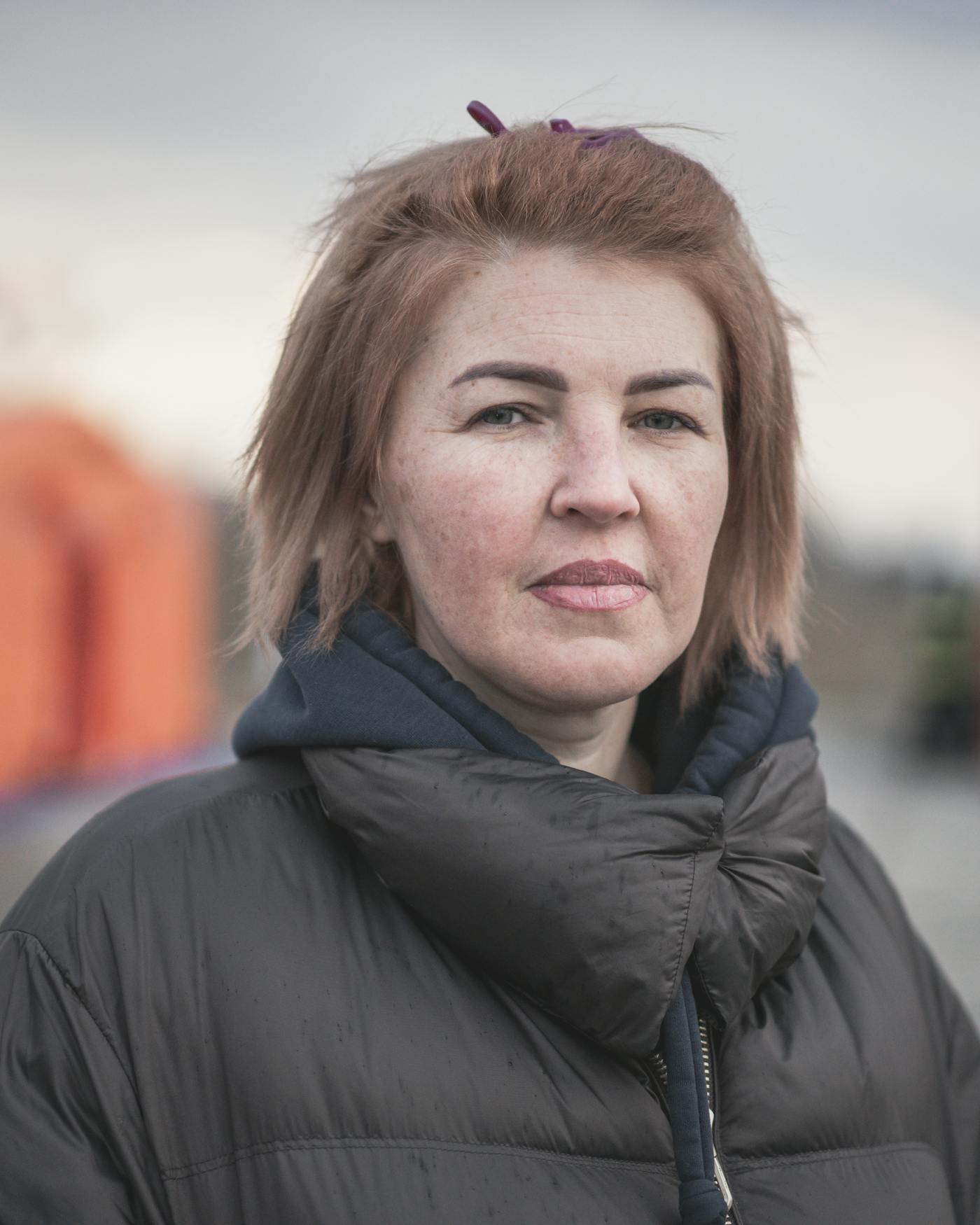
Irina, age 45, hometown: Odessa
“I left Odessa in the morning of March 4. We managed to cross the Danube into Romania very quickly. We waited only for six hours. We fled from Ukraine because I feared for the life of my children. I am divorced and I have a 17-year-old daughter, Nasya, and a boy, Artyom, also 17. My mother is also traveling with us. She has a childhood friend in Germany. She wrote to my mom and invited us to stay with her there, because she knew we were very scared. We packed just a few things, just the necessary. Documents mainly, a sport suit, T-shirt, trainers. I just want to say we are thankful for Romania’s help, we are happy that we were welcomed here.”
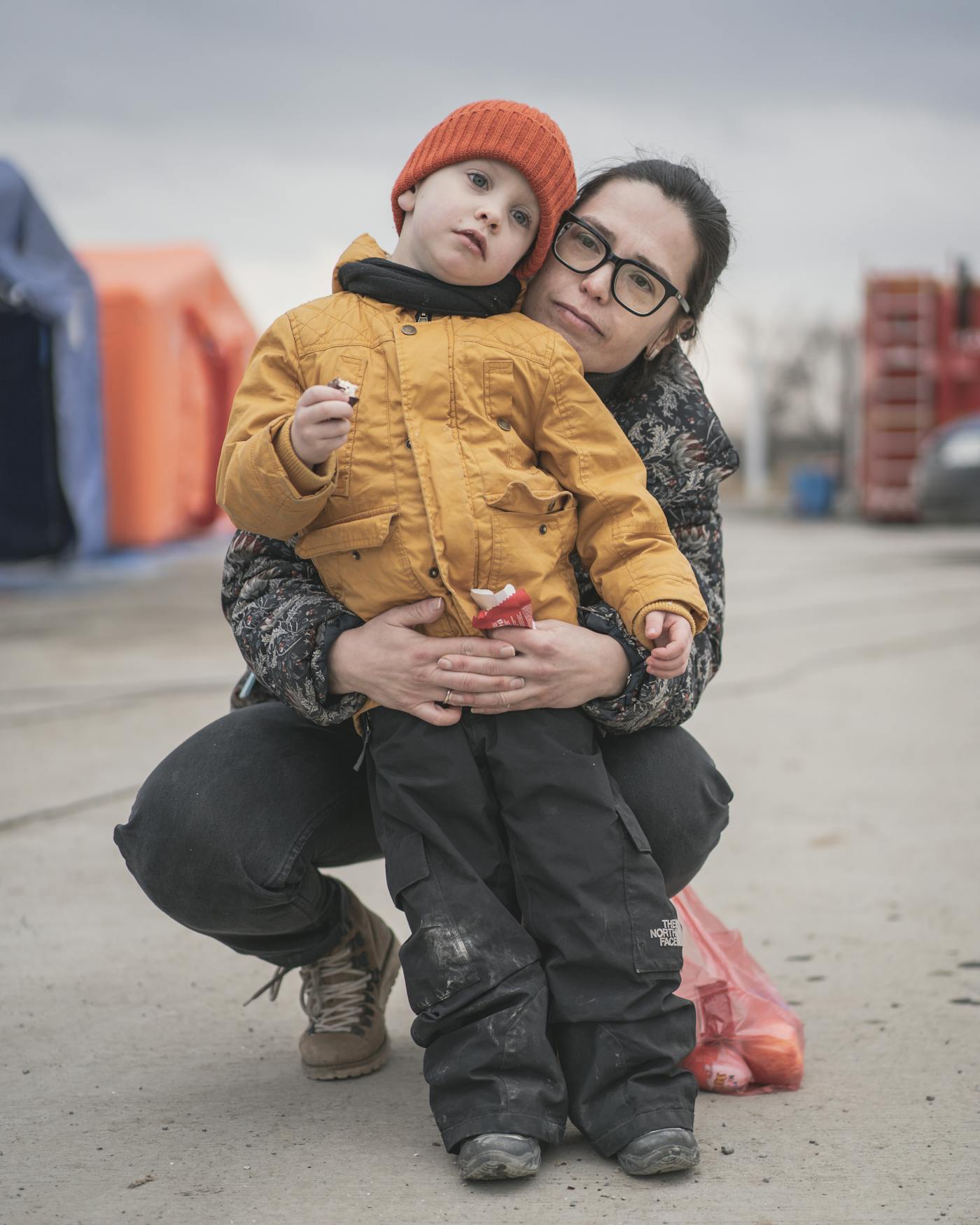
Vira, age 37, and Platon, age 4, hometown: Odessa
“On February 24, I woke up to bombing. Maybe it wasn’t bombing, but it was something strong and loud. It was about four, five o’clock, and I was very frightened. I called my father, and he came to take us to our small town where I was born, Velyka Mykhailivka, 100 km from Odessa. We stayed there for six days, and then I gave up. Kharkiv was being bombed, Kherson, Kyiv is just tearing apart, all the big cities. And I was scared because Odessa is a good city to have, a strategic port. I was waiting and waiting, and I thought, ‘What are you waiting for? When bombs start falling, you can’t leave. It’s already too late.’ So we left. I packed everything that makes me feel like a woman, a few clothes and toys for Platon. We will stay in Galati for one night; a friend of mine who escaped Ukraine earlier is there, she found accommodation with a priest. After that I plan to go to Bulgaria, because my cousin is there, with his wife and my nephew. They left Ukraine the first day the war started, and they live in a hotel, for free.
The thing that I will never forget and never forgive is my father’s eyes when I left him at the border. It was the second time I saw him crying. He was literally crying, his eyes were red. It’s tearing me apart, it’s like big pieces of your heart are just falling down. I don’t know when I will see them again, when I will hold them. And Platon loves them, so it was a very hard decision, to just leave them there. If it wasn’t for Platon, I would go to the army. I am ready to kill! Seriously, I can! I can kill with my bare hands, because I can’t let them do this. It is madness! Nobody should separate people like this!
I only left because I wanted Platon to see his father. He’s a sailor, and he’s now in Los Angeles. I want him to fly to where we are, to see him, to be with him. And I want to go back to Ukraine. It’s our home, it’s our country, and we decide what to do and what not to do. I speak Russian in my life, and I don’t want to live in Russia because I speak Russian! I am Ukrainian! So you don’t need to save me! Who are you? God?”
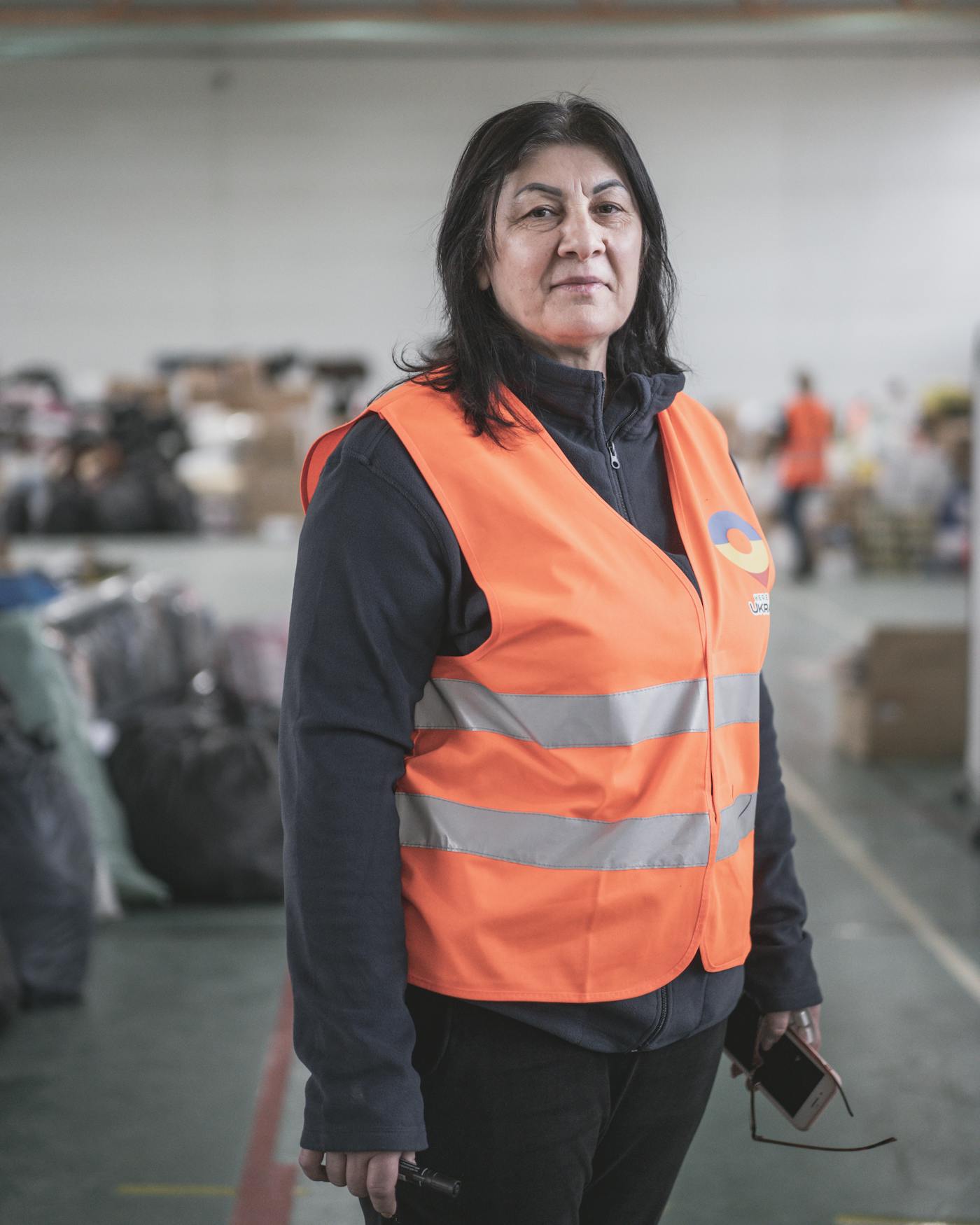
Vera, age 61, hometown: Izmail
“My daughter Elena, 42; her husband, Nikolay; and their three children came to Romania on the first day of the war, on February 24. Nikolay first wanted to just drive them and return to Ukraine, but given they have three kids, he was allowed to pass. I came on Monday, February 28. During the day, things were pretty quiet back home, but the nights came with terror. So I decided to leave too. I packed just a few clothes and some honey. I have a pillow that I also take when traveling, and I completely forgot about it.
After crossing the border into Romania, people would welcome you, feed you, hug you. They asked, ‘Where do you want to go, to Bucharest, to other towns?’ But I did not come here to visit, the thought never crossed my mind, so we all decided to stay and help.
I am now coordinating the operations here at the gym. [The local gym in Isaccea has been transformed into a warehouse, with piles of donations being sorted and distributed to the incoming refugees.] As I also speak Romanian, I can translate, and I got very involved in this. We are also organizing humanitarian transports into Ukraine. We keep in contact with people in Ukraine and try to send them medicine, food, things they need.
I keep busy, and I know I am needed here. But I hope the war will be over soon and we can go back home. We clean the mess here, and then we go back.”
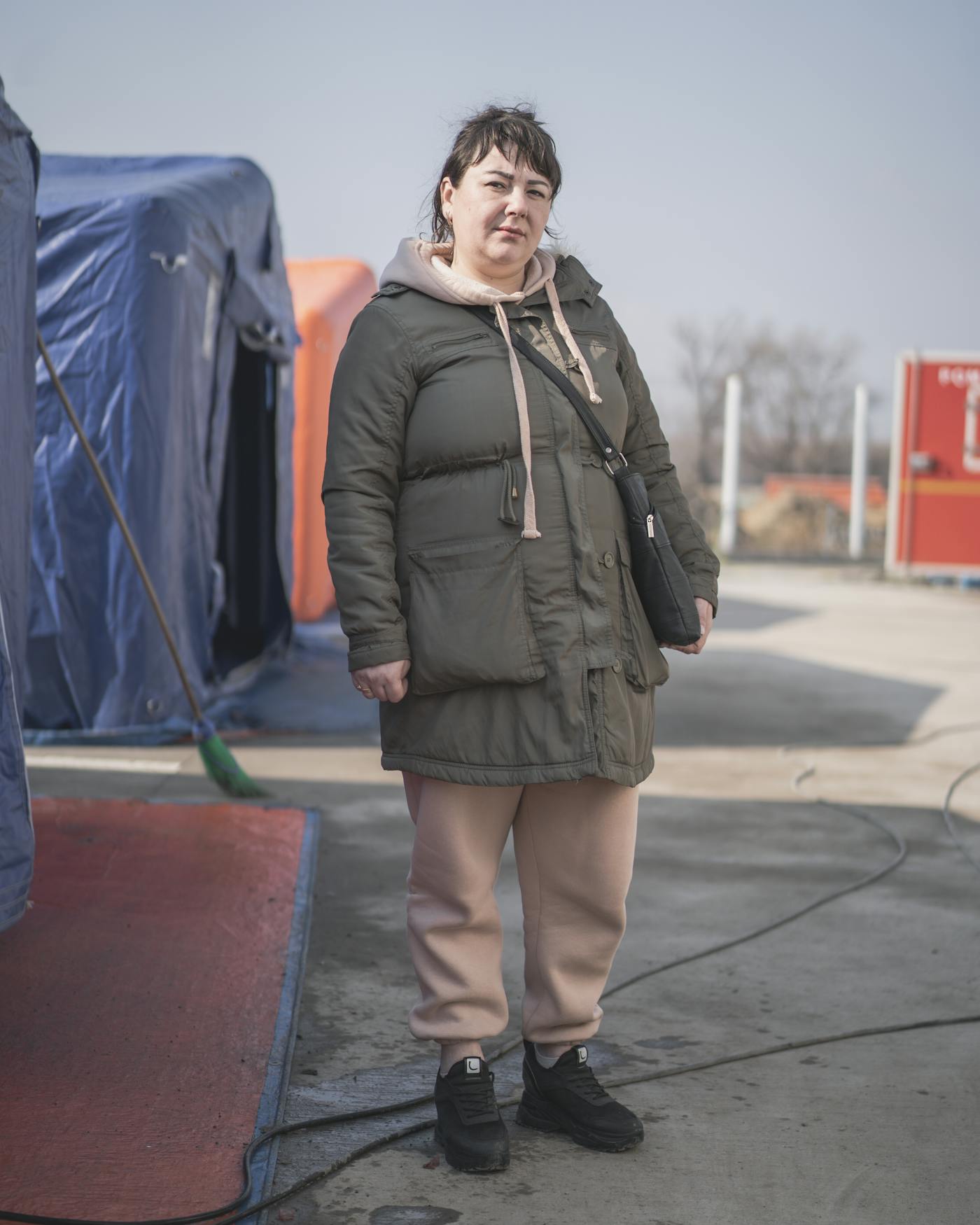
Maria, age 35, hometown: Odessa
“On March 4, at 2 a.m., we heard bombing nearby and the siren. We woke up and went to the basement. We stayed there for about half an hour. It was scary. Later that morning, we left town. I am five months pregnant, with a girl, and I have two sons. Andriy is 16, and Ivan 12. We packed really quick, took some food, clothes, toothbrush, and toothpaste. I was scared, we could hear shooting on the way. My first concern were my children, their life, their safety. I had to leave other members of my family behind, but children were my priority. We spent the night in Izmail at a monastery. To reach the border, we had to go on foot a part of the road. We walked for about two hours. Now we are waiting for a bus to take us to Bucharest. From there, we want to cross Hungary and go to Germany. We are traveling with my nail salon co-worker Iulia, and she has family there.”
